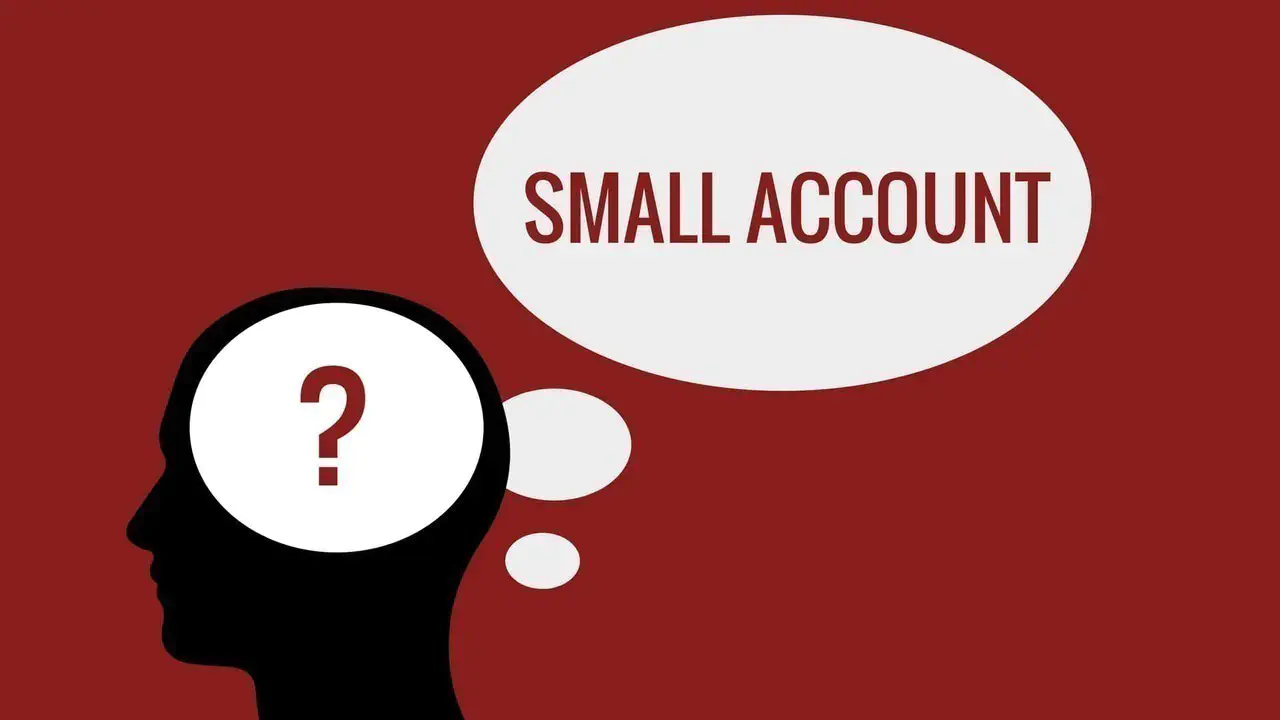Five Top Tips For Growing A Small Trading Account
By Galen Woods ‐ 5 min read
Growing a small trading account is a huge challenge for new traders. Follow these five tips we gathered from top traders to maximize your chances.

Is trading successfully with a small trading account possible?
Should I save more in my trading account before I start to trade?
What should I focus on as an undercapitalized trader?
These are top questions for new traders who cannot afford to risk large amounts of capital.
Frankly, the game is a lot tougher for undercapitalized traders. Trading under financial stress is not advisable.
But if you’ve decided to give it a shot, the five tips below will help you along with the questions above.
I distilled the five tips below based on my trading journey and the insights I gained from reading over 40 pieces of advice for traders with small accounts (written by traders of all stripes).
#1: Preserve Your Trading Account
Small accounts cannot make big money. So don’t focus on that.
Instead, focus on not losing. Make preserving your trading account your top priority.
A better approach is to ditch the focus on a win percentage and instead focus on preserving capital/downside risk…
Here are some articles to help you preserve your hard-earned capital:
- Trader’s Survival Guide: A Primer on Risk Management
- Position Sizing - The Most Important Trading Rule
- 5 Lessons on Risk from Best-Selling Books
- Quotes on Preserving Capital
#2: Appreciate The Power of Small Accounts
Stop.
Think about how vulnerable your trading account is.
Understand that you need to be more disciplined and diligent than the average trader to succeed. You have very little room for error.
This appreciation will increase your mental capital and increase your odds of success.
An advantage that small accounts do have is that they are aware of how close they are to not being able to trade. Therefore, they carefully plan and patiently wait for their trade setups unlike a trader with too much money in their account who will take trades on any whim at all because they feel like they are playing with house money.
This mindset is also known as the Power of Broke - a concept I gleaned from Ross Cameron’s The Story of a Small Trading Account. It originates from a bestseller from the Shark Tank star, Daymond John.

#3: Reduce Your Financial Stress
If you have a small trading account, you should not depend on your profits for your living expenses.
You should seek income from other sources and try to save as much as possible. This will help you:
- Trade with less stress.
- Increase your trading capital.
Here are some resources to help you reduce your financial stress:
- How to Save Money: 100 Great Tips to Get You Started
- 10 Tips For Part-Time Day Traders - Trading part-time allows you to keep your day job.
#4: Use Leverage Wisely
Leverage is dangerous. Misusing it can ruin your trading account, regardless of its size.
For small trading accounts, leverage is essential for accessing specific markets.
BUT
…leverage should not be used to increase the trade’s size (i.e. the number of shares), but should only be used to reduce the trade’s margin requirements.
- Adam Milton on thebalance.com
An example is to use derivatives like options and warrants to trade stock price movements. Click here for a video from Khan Academy that explains how call options offer leverage for stock traders.
Options trading has inherent leverage and opens up doors for small traders.
- Small Account? 5 Options Trades Under $300
- Options Trading for Small Account - ETF SPY Strategy System
![]()
Intraday trading with leverage is risky. But if you know what you are doing, it’s an excellent way to monitor and control your risk carefully.
After all, an intraday trader can work with tighter stop-losses and avoid gap risk altogether.
- Big Rewards Don’t Require Big Risk in Day Trading
- Why Is Futures Trading The Best Option For A Day Trader?
#5: Be Realistic
Don’t aim for the sky. Be realistic.
Most likely, your small trading account will be a practice account. It will help you hone your live trading skills, but you will not be making a living out of it any time soon.
And, even if you do everything right, you will still need a long time to grow the small trading account to a size that matters. Patience is crucial.
Being realistic means recognizing a few truths about trading with a small account.
Recognize that most of the time you will not be trading.
Don’t trade because the market is open and you want to make money, trade because an opportunity that you are prepared to capitalize on has presented itself.
Recognize that luck plays a role.
That’s what made these people the successes that they are: it’s strategic risk-taking, persistence, and a magic topping called luck.
Recognize that whether a trading account is small or big is relative. Think about how much you need. Set realistic goals and expectations. This is the main point of this extensive post/podcast by Sasha Evdakov.
Bonus - Two podcasts on trading with small accounts